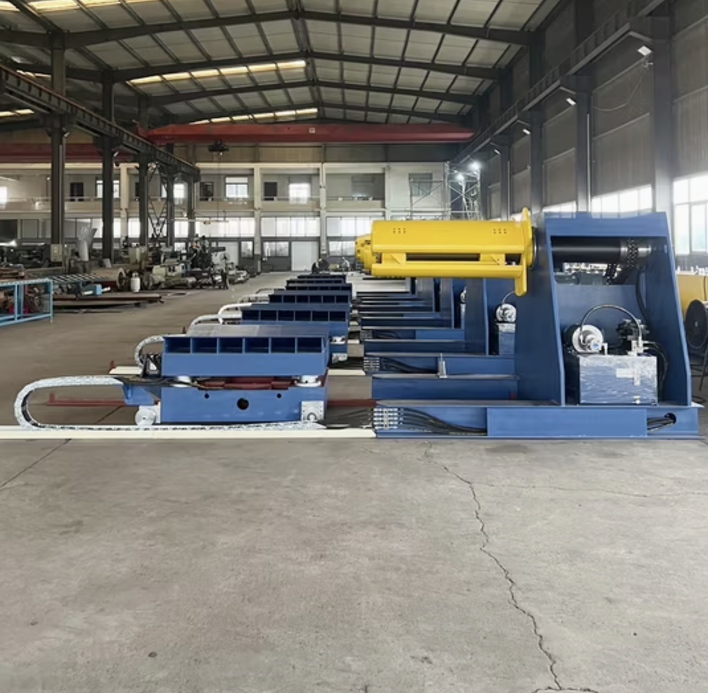To express an interest in this machine please submit the form below.

Not Sure What Machine You Need?
Select Your Profile, We'll Match It
Choose your desired profile drawing, and let Machine Matcher connect you with the best roll forming machine tailored to your needs.
Browse Profiles


Coil winding machines are essential for manufacturing various types of coils used in electronics, transformers, motors, inductors, and other electromechanical devices. These machines ensure precision, efficiency, and uniformity in winding wires onto a core or spool. In the USA, these machines are widely utilized across industries due to their versatility and automation capabilities.
A coil winding machine is designed to wind wire into specific patterns and sizes around a core to create electrical components. The machine caters to different wire gauges, coil types, and configurations, offering adaptability for diverse applications. Modern coil winding machines often feature programmable logic controllers (PLCs), ensuring consistent and automated operations with minimal human intervention.
| Feature | Details |
|---|---|
| Wire Diameter Range | 0.02 mm to 5 mm |
| Winding Speed | Up to 1200 RPM (depending on the model) |
| Tension Control | Automatic and adjustable (0.1 g to 500 g) |
| Spool Size | Up to 500 mm diameter |
| Core Types Supported | Round, rectangular, toroidal, and custom shapes |
| Power Supply | 110V/220V, 50/60 Hz |
| Motor Type | Servo motors for high precision and reliability |
| Control System | PLC or CNC-based systems |
| Programming Interface | Touchscreen with USB and Ethernet connectivity |
| Dimensions | Compact models: 800 mm x 600 mm x 400 mm; Larger models vary |
| Applications | Transformers, motors, inductors, solenoids, and custom electronic devices |
Q1. What are the types of coil winding machines available in the USA?
A: There are several types, including manual, semi-automatic, and fully automatic machines. Specialized variants include toroidal winding machines, linear winding machines, and needle winding machines.
Q2. How do I choose the right coil winding machine?
A: Consider factors such as wire diameter, production volume, type of coils needed, automation requirements, and budget. For complex coil designs, opt for a machine with multi-axis functionality and programmable settings.
Q3. What are the maintenance requirements for these machines?
A: Regularly check wire tension mechanisms, clean the machine to prevent dust buildup, lubricate moving parts, and inspect the control system for updates or repairs.
Q4. Can I use a single machine for different coil types?
A: Yes, many modern machines are versatile and support various coil types. Ensure the machine has adjustable settings and supports the desired core shapes and wire gauges.
Q5. Are there USA-based suppliers or manufacturers?
A: Yes, the USA hosts several manufacturers and distributors of coil winding machines, including custom solutions for specific industrial needs. Some popular brands include [specific brands can be researched or listed].
Q6. What is the price range of coil winding machines in the USA?
A: Prices vary widely based on features and automation levels. Manual machines start around $2,000, while fully automated, high-precision machines can exceed $50,000.
Q7. Are these machines compatible with renewable energy applications?
A: Absolutely. Coil winding machines are crucial for producing components for wind turbines, solar inverters, and other renewable energy systems.
Q8. How can I ensure the quality of the coils?
A: Use high-quality wire, regularly calibrate the machine, and employ programmable settings for consistent and accurate winding.
Copyright 2026 © Machine Matcher.